This year, the musician, author of publicly favorite songs, Hero of Abkhazia Valery Bagatelia would have turned 60 years old.
Arifa Kapba
The famous musician Valery Bagatelia was born on November 28, 1959 in the family of Jason Bagatelia and Zoya Gadlia, and was one of four children. They were originally from the village of Ldzaa near Pitsunda, but Valera was born in Sukhum, studied at the Sukhum School No. 2, after graduating from which he served in the army in the navy in the Russian city of Sevastopol.
Time of musicians
His love of music began in his school years. Valery did not have a musical education, but he was “self-taught”: he played the piano, drums, and, of course, the guitar, sang and composed music. It was more than a hobby, he had great talent for music, his friends and professional musicians were sure.
The honored artist of Abkhazia, a member of the legendary vocal and instrumental ensemble “Apsny-67” Nodar Sagaria knew Valery and had been close friends with him since the 70s of the last century. At that time their rehearsal base was in the room where the Museum of Military Glory is now located.
Of course, Valery’s passion for music is a “sign of the times”, Sagaria believes. Then, in the sixties and seventies, various VIAs (vocal and instrumental ensembles - ed.) and other musical groups mushroomed, and everyone who had a talent for music tried to assemble their own team. Bagatelia also gathered such a team, naming it “Abraskil.”
“Valery often came to us for rehearsals, we were close friends,” recalls Nodar Sagaria, “I made arrangements for his songs.”
According to a friend and colleague, despite Bagatelia was self-taught, he had a great musical taste and at that time created a very high-quality musical product, “let alone his harmonious transitions.”
One of Bagatelia’s songs arranged by Nodar Sagaria was the song “Хара харуаа реихабы”. This composition is directly associated with the Patriotic War of the people of Abkhazia 1992-1993. Many are even convinced that it is dedicated to the Commander-in-Chief of the Abkhaz troops, Vladislav Grigorievich Ardzinba. This association with the war is not surprising, because there are shots of a military chronicle where a group of Abkhaz fighters sings a song with the author Valery Bagatelia himself and his closest friend, also musician Rezo Chachkhalia. But in fact, according to Nodar Sagaria, “Хара харуаа реихабы” was written by Valery Bagatelia long before the war, in the eighties. And then, as they say, “got a second life” and acquired a special meaning.
The pre-war life of Valery Bagatelia and everything that happened after the beginning of the Patriotic War was like two opposite parts of the world, two banks of the same river, white and black, like light and darkness, like good and evil. Everything that he had “before” was so different from what happened “after”.
Life “before the war”
A handsome, talented, musical Valery Bagatelia was also a very athletic young man. From childhood, he was diving, already at the age of 15 he became a master of sports and trained children, and later worked at the Sports Base in Eshera. His sports achievements were even used several times in cinema: he played small roles, was an understudy in some films, performing stunt jumps for the main character.
After the army, Valery entered the Physical Education Faculty of the Abkhaz State University, where, in addition to studying, of course, he was also involved in student life, in organizing concerts and evenings. And once during the preparation of the next celebration of students' day, he met his future wife, Inna Tuzhba, a second-year student at the Faculty of Education. Inna was not only an attractive girl, but also danced in an ensemble created at the University by Kandid Tarba.
“There we met at rehearsals, each represented his and her own faculty. Valery was with his ensemble, we sang a song together, and later it somehow happened that we got married and started a family in 1982,” recalls Inna Tuzhba.
Bound by music
This married couple, who, one might say, was united by music, had two children: Rada and Renata Bagatelia. Music entered the lives of girls as familiarly as the sun looks into the window in the morning.
In a television interview, recalling those times, Inna Tuzhba says that together with her husband they often sat at the piano, played something, composed something, and once the eldest daughter Rada, once again seeing them at the instrument, said: “How happy you look now!”
Inna Tuzhba co-wrote her husband’s songs several times: he convinced her that she could write poetry to the music he composed.
“The songs “Бабаду” and “Хара харуаа реихабы” are our joint work with him. He wrote the music, and I wrote the lyrics. He once turned to me, believing that I could. I’m not a poetess, and in general I graduated from Russian school, but he wanted me to write the lyrics, and we together composed these two songs,” says Inna.
Daughters went to school, studied music, lived in absolute love and harmony with their parents, for whom creativity and music were always the first thing. Peace reigned in the house. Even if there were any, like at everyone else’s place, everyday troubles and other problems, Valery resolved everything calmly and without fuss.
Then the war broke out
Like a thunder in paradise the war began on August 14, 1993.
The daughter Rada was at that time with her grandparents from her mother's side in the village of Kyndyg in Eastern Abkhazia, and the rest of her family were in Sukhum. Having said that he would go “to find out some information”, Valery in the very first hours left “to the positions” and stood with the other guys at the exit from Sukhum. He entrusted the family to his brother, who then took his wife and daughter to Pitsunda.
After that Valery had not seen his wife Inna and daughter Renata for a long time. He could only say goodbye to them before they left for Maykop by sea on a boat. Here is how Inna recalls this moment: “He managed to break out for half an hour and came with his bushy face and in some kind of military uniform, to see us.”
Valera and “Chachkhal”
Throughout the war, Valery Bagatelia went side by side with his closest friend, the musician Rezo Chachkhalia, who was called “Chachkhal”. They and those guys who fought along with them, received the unofficial name of the “Babadu” group - the same name with the popular song of Valera, and they chose Valera as their commander.
Nodar Sagaria recalls how, together with Abkhaz television journalists Slavik Sakania and Akhra Akaba, they had already been in Upper Eshera during the war and had seen Valery Bagatelia and Rezo Chachkhalia at the positions.
After the liberation of Gagra, Nodar Sagaria met with music friends on the border along the Psou River. “He, I, Rustam Konjaria and Rezo Chachkhalia met then on the Psou River, and there we sang “The Song of the Rock”, and cameraman Astik Sadzba was filming it all, this tape is in the state television archives,” Sagaria says.
The last time Nodar Sagaria saw Valera and “Chachkhal” in Gudauta a week before the March offensive in 1993. As if sensing that they would not see each other again, Sagaria urged them to take a moment and record some songs for the archive, since all the television resources were concentrated where they were. “I told them then: war is war, but this is also the case, let's go upstairs, record songs. I understand how busy you are, that it is important, but let’s stay, sit for an hour or two and work. But I failed to persuade them,” Sagaria recalls.
Avenge Rada
Nobody could stop Valera then. After all, he already knew then that in the village of Kyndyg, Georgian guards mercilessly killed his wife's unarmed parents and his daughter Rada. Who knows what was going on in the heart of the father from the moment he knew the terrible news? We can only judge this by the song “Rada”, which Valera Bagatelia wrote after the death of his daughter, in which he calls her Angel and swears that he will avenge the enemies of her death.
After the incident, Valery Bagatelia, together with his brother John Dzidzaria, went to Maykop, where his wife Inna and the youngest daughter Renata were.
“No one except him could decide to come to me and tell me what happened,” Inna recalls. “He held on, hiding all the pain in his heart, and only told me that my father died, then suddenly burst into tears ... He drove us to Sochi, where I stayed with my sister, who was there with her family. I said that I would not go to Abkhazia until he brought me Rada, until I saw her. Imagine what happened to him. He tried to explain that there would be a barge that would storm Ochamchira, and then, perhaps, he would take Rada out. In general, he did his best to change the topic of the conversation, came up with something for me to sound believable.”
“If every mother does not let her son out”
Nevertheless, Inna and Renata later returned to Abkhazia. Inna learned about what happened with Rada, but not from Valera himself, but from a song that he, sometimes returning from his position, slowly composed, locking the door to the room behind him. Once, listening to the words of the song, she understood everything.
Inna admits that after that she tried to persuade her husband not to go to the front anymore, convinced that he could be useful in something else, but then Valery answered her: “If every mother does not let her son go and every wife does not let her husband go, sister will stop brother, Abkhazia will be destroyed.”
The March offensive was the last for Valera Bagatelia, as well as for his friend Rezo Chachkhalia. They were both listed as missing until their graves were found in the area of the current Republican Hospital in Sukhum after the end of the war. Three letters “Rad ...” were cut out on the machine gun of Valery Bagatelia, and he did not manage to cut out the last letter “a” from his daughter’s name, nor did he manage to finish writing many songs, did not manage to complete those affairs that were so cruelly interrupted by the war.
Songs of Valery Bagatelia after the death of her father were sung by his talented daughter Renata Bagatelia, they were included in the album, recorded and released by a great friend of the family, musician Artur Lakrba. Valery’s compositions were also performed by the “Abraskil” musical ensemble he created. Bagatelia’s songs, one of the most moving and beautiful in the Abkhaz stage, were and are still sung by many in Abkhazia. Among them there are beautiful, lyrical, such as “Бзиа избо сылбадзом” or “Happy New Year”, and deeply personal, tragic, such as “Rada”. These musical compositions are the best memory of the Hero of Abkhazia Valera Bagatelia.
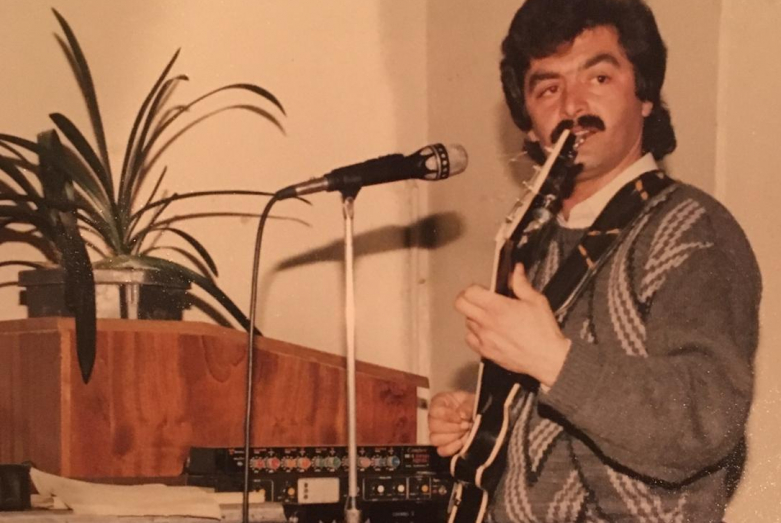
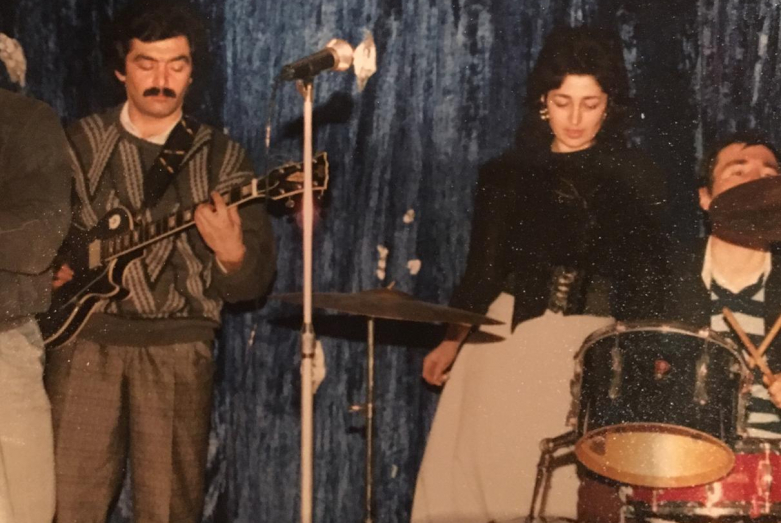
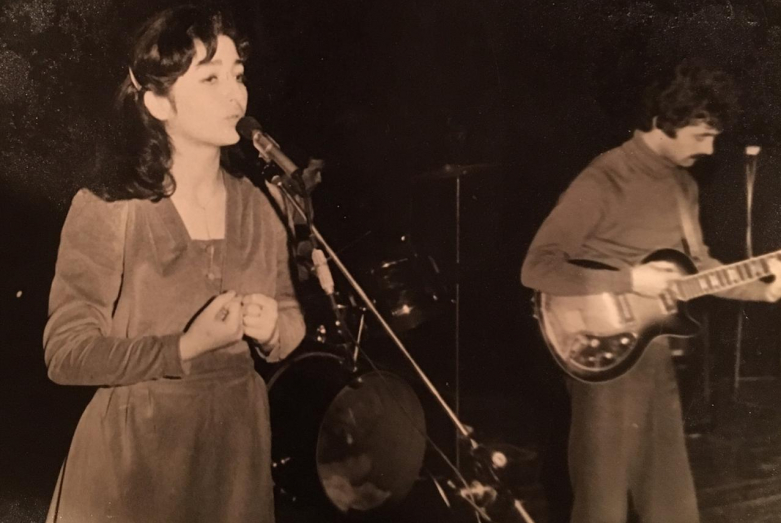
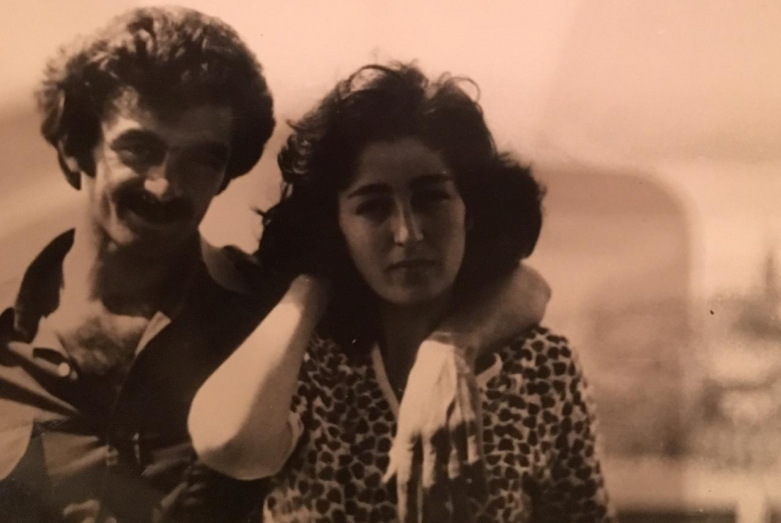
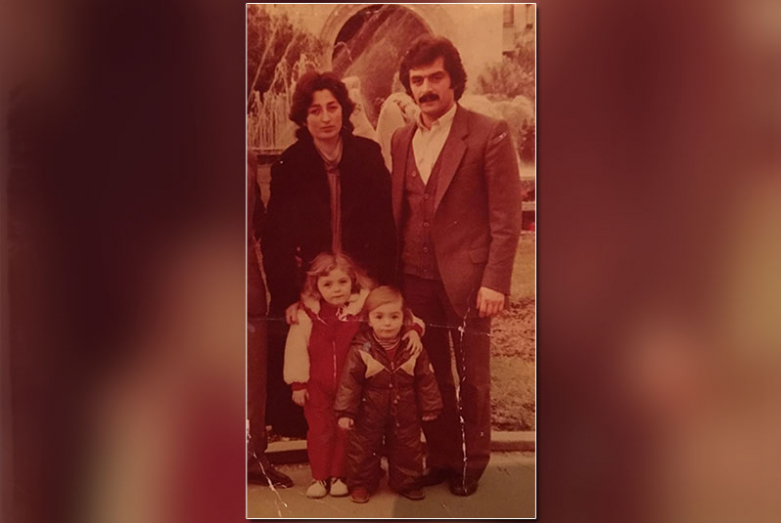
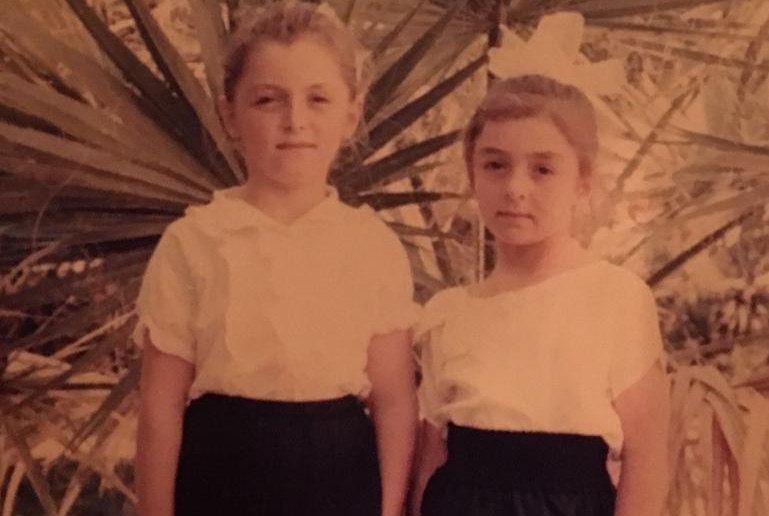
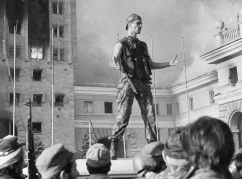
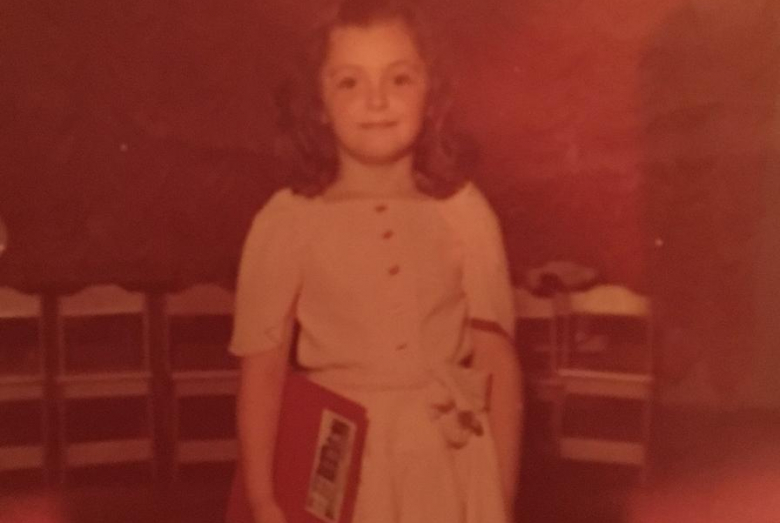
to login or register.